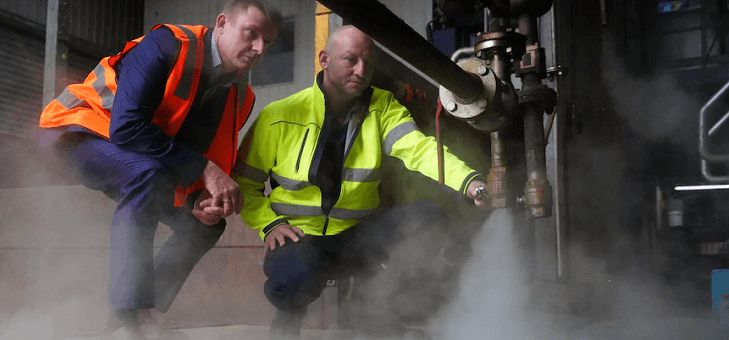Food processors say Australia’s gas crisis is threatening the country’s food security.
They say the high price of gas is set to push up the price of food and could even disrupt its supply.
The Master Butchers Co-operative (MBL) is just one business facing astronomic price rises for gas supplying its plant in Adelaide’s north.
The cooperative processes most of the by-products from South Australia’s meat industry, turning them into valuable things like tallow and pet food oil.
By-products can not be sent to landfill and there is only limited capacity to compost them.
“Our gas bill has gone from $135,000 a month to $900,000 a month,” CEO Jamie Higgins told the ABC.
“It’s catastrophic for us.”
“If that price was to continue for a full year that’s a $9 million increase in our costs and that would be terminal for our business.”
If the company can not get affordable gas soon, it will have to shut down, which means meat and poultry processors might have to stop too.
“It would stop the market, stop the supply, especially in South Australia,” Mr Higgins said.
Food supply constraints on horizon
MBL is just one of many food processors affected by high gas prices.
“We use a lot of gas to produce food and we’re really hearing that prices are sort of doubling or tenfold what they previously were and that’s having a huge impact on our industry,” Food SA CEO Catherine Sayer said.
That means everyday customers will soon see higher prices for food.
But energy economist Liam Wagner, an associate professor from Adelaide University, said the impact could be worse than that.
“I think we’re likely to see significant supply constraints of food and we’re likely to see quite significant increases in prices for other commodities, particularly in the housing construction sector and also in transportation,” he said.
The federal government has an emergency ability to force gas companies to send extra supply into the domestic market under the Australian Domestic Gas Security Mechanism (AGDSM), known as the “gas trigger”.
After a meeting of Commonwealth, state and territory energy ministers on Thursday, the government is reviewing that option.
“Nothing is off the table in regards to the secure gas mechanism,” Resources Minister Madeleine King said.
“So, we will consider all options, we’ll do it as a matter of urgency so that there are options available to the government to make sure there is adequate supply.”
It also wants to renegotiate the Heads of Agreement (HOA) signed between gas exporters and the government.
The industry said it has already been supplying extra gas.
But a cold snap, flooding in Queensland’s coal mines and outages at coal power plants have forced electricity generators to buy most of it.
“Which is why we need to actually have coal power at its output, have less demand on gas that’s going into the power station, making more gas available and hopefully that relieves pressure on those prices,” Origin Energy CEO Frank Calabria told the ABC.
“But spot prices right now in response to that power market have hit very high.”
The gas industry body said it would work constructively with the government to review the rules, but warned against rash changes to existing arrangements.
“The ADGSM has never been triggered, as the gas market has always been in surplus,” the Australian Petroleum Production and Exploration Association (APPEA) said in a statement.
“In addition, the industry has met all of its obligations under each of the three HOAs that have been in place since October 2017.”
The coal power plants that have left a gap in the energy market are expected to come back online over the next three months, but that will be after peak winter demand has passed.
 © 2020 Australian Broadcasting Corporation. All rights reserved.
© 2020 Australian Broadcasting Corporation. All rights reserved.
ABC Content Disclaimer

